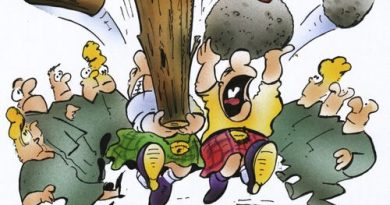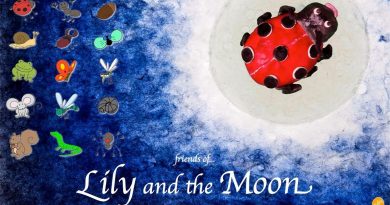FOSTERING GENDER EQUALITY THROUGH STORYTELLING IN THE FL AREA.
How can we, FL teachers, promote real gender equality from our area? Is it a trendy issue whose treatment in class may depend on the teacher´s criteria?
The first question is the subject matter in this paper; however, it is equally important to be aware that the promotion of learning environments which guide children towards gender equality is a requirement in the Curriculum Act, Crown Decree 126/14, art. 10 concerning the transversal elements, in relation to the second one.
The world of storytelling, reading and in general the magic in the fictional space of literature provides English teachers with invaluable resources to develop attractive communicative situations in the FL class, being these transversal elements a “hidden” integral part of the contents in every formative unit.
In this regard, the use of fixed stories in English brings about ideal frameworks for children to understand how our emotions (i.e. empathy) can act as a “moral compass” to put in the shoes of others; and so understand why the Princess in the story didn´t like not to be trusted. This moral can lead to further analysis, depending on the grade, guiding debates through questions like: would you trust someone who does not trust you? The, why should the princess do? As the reader may have already guesses, we are thinking of the tale: “The Princess and the Pea”; and we have selected a beautiful and enlightening fixed version by HISHE Kids. In this adaptation of the traditional story, the princess refuses to start a relation with someone who did not trust her.
On the other hand, there is a vast array of possibilities when it comes to embark children on practical usage of English taking literature and stories as a starting point. In what follows, we would like to focus on Animation and expression techniques (drama activities in what follows), since they create plenty of opportunities for classroom interactions in the FL. Drama techniques range from exercise-based games, short rehearsed scenes from familiar stories, basic role plays, and simulations. There are some more advanced techniques which would obviously be out of reach for our students in primary education. According to O’Neill and Kao (1998), the usefulness of every kind of drama in second language (L2) lies in the fact that it provides contexts for multiple language encounters and encourages authentic dialogue between teachers and students. In this light, the use of drama strategies offers students the opportunity to meet the FL in purposeful and challenging contexts.
Apart from the different roles that the FL teacher can take on in different moments of the lesson or within an activity, special attention must be paid to the relevance that these roles acquire in animation and expression techniques. According to O’Neill and Kao (1998), “teacher in role” is one of the most effective ways of beginning drama-based activities. This specific technique allows the teacher to take on a role and enter the developing action of the drama. In O´Neill and Kao´s words, the willingness of the teacher to enter and build the fictional world in this way is a powerful means of altering the atmosphere, relationships and balance of power in the classroom, since it immediately changes the function of the teacher within the lesson. The purpose of the teacher taking on a role has nothing to do with teaching children the way in which they should perform; rather it is more related with inviting them to join in and enter the fictional space of the story, role play, etc. Similarly, “teacher in role” is a way to send students relevant and subtle information: the activity is regarded by the teacher as important, thus we must also take active part.
More challenging tasks may be related to involving children actively in the creation of alternative plots. This requires critic sense and awareness of the unfair treatment of women in traditional stories. Moreover, this can be an ideal excuse to revise and fix other stories where children identify behaviours that undermine advance towards the inalienable right of gender equality.
Video by: HISHE Kids
Bibliography: O´Neill, C. and Kao, M.S. “Words into words: Learning a Second Language through Process Drama”. Ablex Publishing Corporation. 1998.




